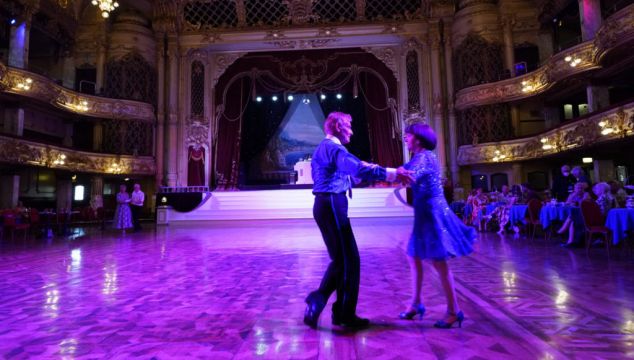Singing and dancing can help promote healthy ageing and improve both physical and brain health in older adults, according to a new report from the Institute of Public Health (IPH).
The research highlights the positive health and wellbeing impacts of arts and creativity in later life, finding they can help improve physical, psychological and social health in older adults.
The report, ‘Arts and Creativity in Later Life: Implications for Public Health and Older People’, reviewed more than 70 international studies investigating the potential health and wellbeing benefits of arts and creativity.
The IPH researchers found “strong evidence” that regularly taking part in group dance can enhance balance and mobility, improve physical strength and flexibility, increase aerobic capacity and endurance, and increase physical activity levels.
They also identified “preliminary evidence” that dance can help improve independence in daily living activities, reduce the fear of falling, help alleviate depression and boost mood or self-esteem.
Singing, arts and theatre
For music and singing, researchers found “promising” evidence that regularly taking part in group singing and music classes is linked with improved cognitive function, quality of life, and preserving a sense of wellbeing – along with preliminary evidence suggesting an association between group singing and enhanced respiratory function.
For visual and creative arts, researchers reviewed qualitative evidence that participation in visual and creative art group programmes can help improve cognitive abilities, develop new skills, and provide opportunities to develop new relationships and social connections.
They also identified “promising” evidence that visual and creative arts programmes, like creating watercolour paintings and art making, can help improve wellbeing in older adults living with dementia.
For drama and theatre, they found preliminary evidence that regularly taking part in classes can provide emotional wellbeing benefits, although they noted that more research is required.
The authors of the review suggested that the benefits of taking part in arts and creativity should be more widely promoted in later life, especially with low participation in arts and creativity by older people.
Laura McQuade, co-author of the report and IPH evaluations and interventions officer said: “Given the health and wellbeing benefits, there is an opportunity to encourage more adults in Ireland and Northern Ireland to take part in arts and creativity as they grow older.”
'Knowledge gap'
The review also identified a “knowledge gap” in how arts and creativity interventions are evaluated for their return on investment in health and social terms.
To bridge that gap, IPH commissioned researchers Professor Ciaran O’Neill and Dr Grainne Crealey from Clinical Costing Solutions to review how the economic benefits of arts and creativity interventions are evaluated.
This review found that arts and creativity interventions could be cost-effective and offer value for money, but recommended improvements to how such programmes are evaluated into the future.
“Arts and creativity interventions have the potential to improve the health and wellbeing of older adults at relatively low cost and such interventions can be accessible and scalable without the need for significant infrastructural investment,” Dr Crealey and Prof O’Neill said.
“The methods used to assess their relative value need to evolve if such interventions are to compete with other activities intended to improve health and wellbeing.”







